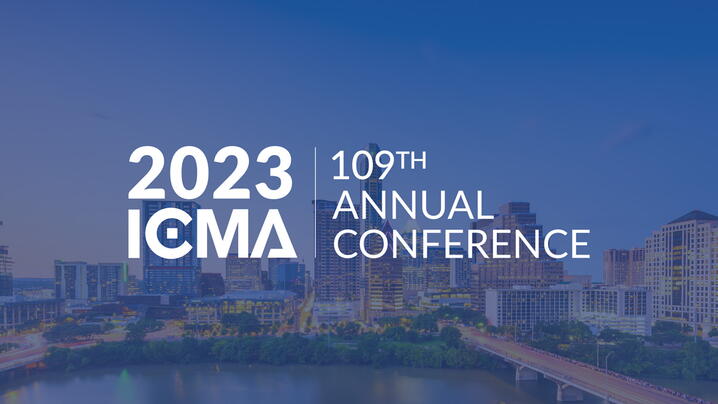It is critical that local governments learn how to effectively manage the data they collect. In this free four-part webinar series, you will learn about the fundamentals of data analytics, management, and governance, along with some best practices from local government. All sessions are free and must be registered for individually. ICMA has partnered with SAS to develop the Smart Communities and Data Analytics Report to bring the power of data analytics and smart community practices to local governments worldwide. When activated, these practices help local governments make informed decisions across operational sectors such as public safety, energy, transportation, purchasing, public health, transportation, land use, water and wastewater, environmental quality, and more. Part 1 (2/15): Overview of Data and AnalyticsReview the importance of local governments sharing data and running analytics. SAS's Jennifer Robinson and Kay Meyer discuss the prevailing problems that local governments have with data, the types of data currently collected and the types of data that will be generated as new technologies emerge and influence the information we collect about our infrastructure, operations, and citizens. Part 2 (3/1): Managing DataData strategists will talk about how to successfully get your data in order. SAS's Kay Meyer and Mary Anne Hopper will outline five essential components of a data strategy and share examples of successful data management. Having implemented a transformative data integration project for her government agency, Kay Meyer will talk frankly about the pitfalls you may encounter, how to ensure that data is protected, and the differences between data sharing and open data. Part 3 (3/15): GovernanceLearn about data stewardship and governance that will help your staff as it embarks on using your data productively and securely. In the third webinar in the series, SAS’s Kay Meyer and Mary Anne Hopper will explain data governance, its necessity, and its value. They will discuss the essential components of data governance including the why, how, who and what of governance. Part 4 (3/29): Best PracticesReview examples of how governments are using their data to improve efficiencies and effectiveness. SAS's Jennifer Robinson and Kay Meyer will cover several of the types of data that local governments have: big data such as millions of meter readings, fast data such as the streaming data that helps a government maintain its assets, complex data that can be used to solve problems such as recidivism, unstructured data that is collected by law enforcement, and transparent data used to inform citizens. |

Main navigation
-
Resources
- ICMA Priorities
- Popular Topics
- Popular Resources
- Job Titles
-
Member Center
-
About ICMA
-
Careers & Learning
-
Publications & Research
-
Partner with ICMA
-
News & Events
You may also be interested in

2023 ICMA Annual Conference Education Session Preview
Still planning out your conference schedule? Consider adding these sessions to your list.
EP40 Affordable Housing: Open the Door to Economic Mobility for Your Residents
Actionable next steps on what local governments can do about affordable housing, and its direct tie-in to community dynamics and economic mobility opportunities for residents.

Introducing Local Government Reimagined
ICMA’s long-term commitment to helping public administrators innovate and adapt to meet the challenges of today and those beyond the horizon

